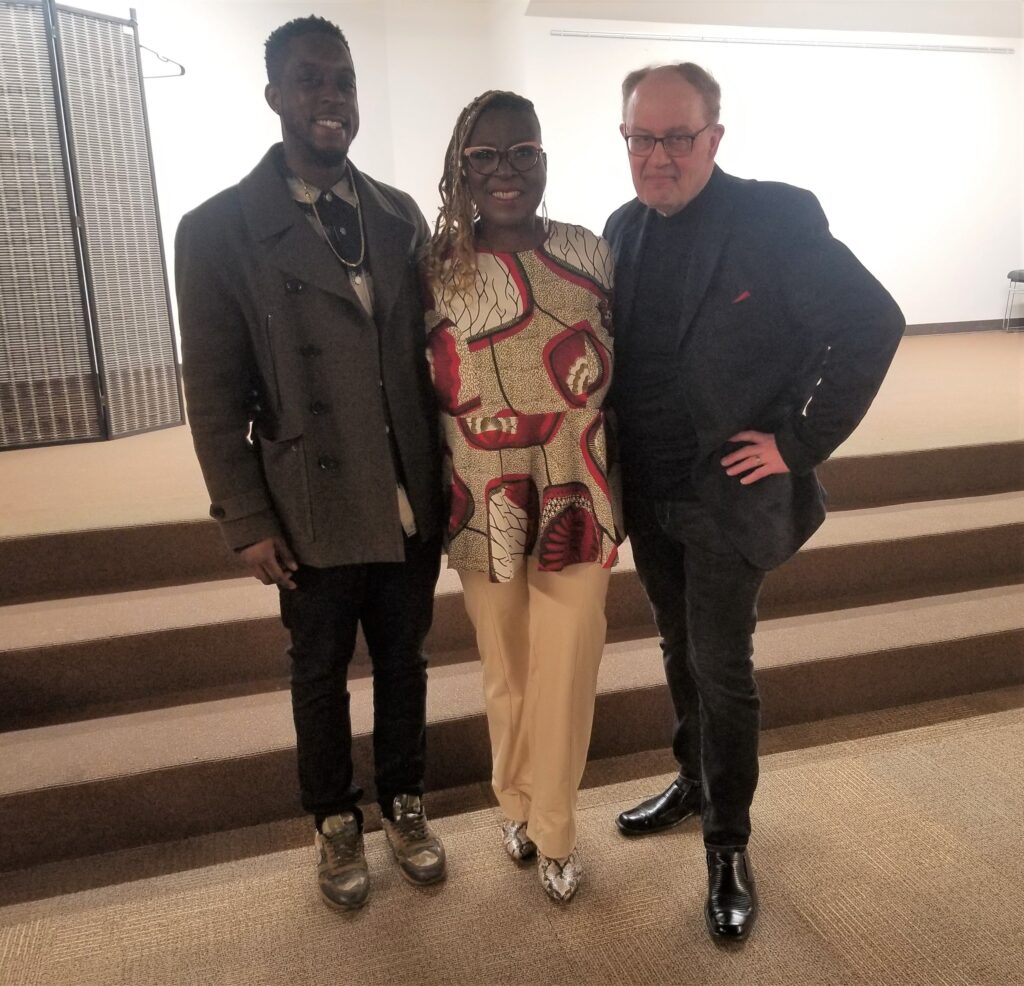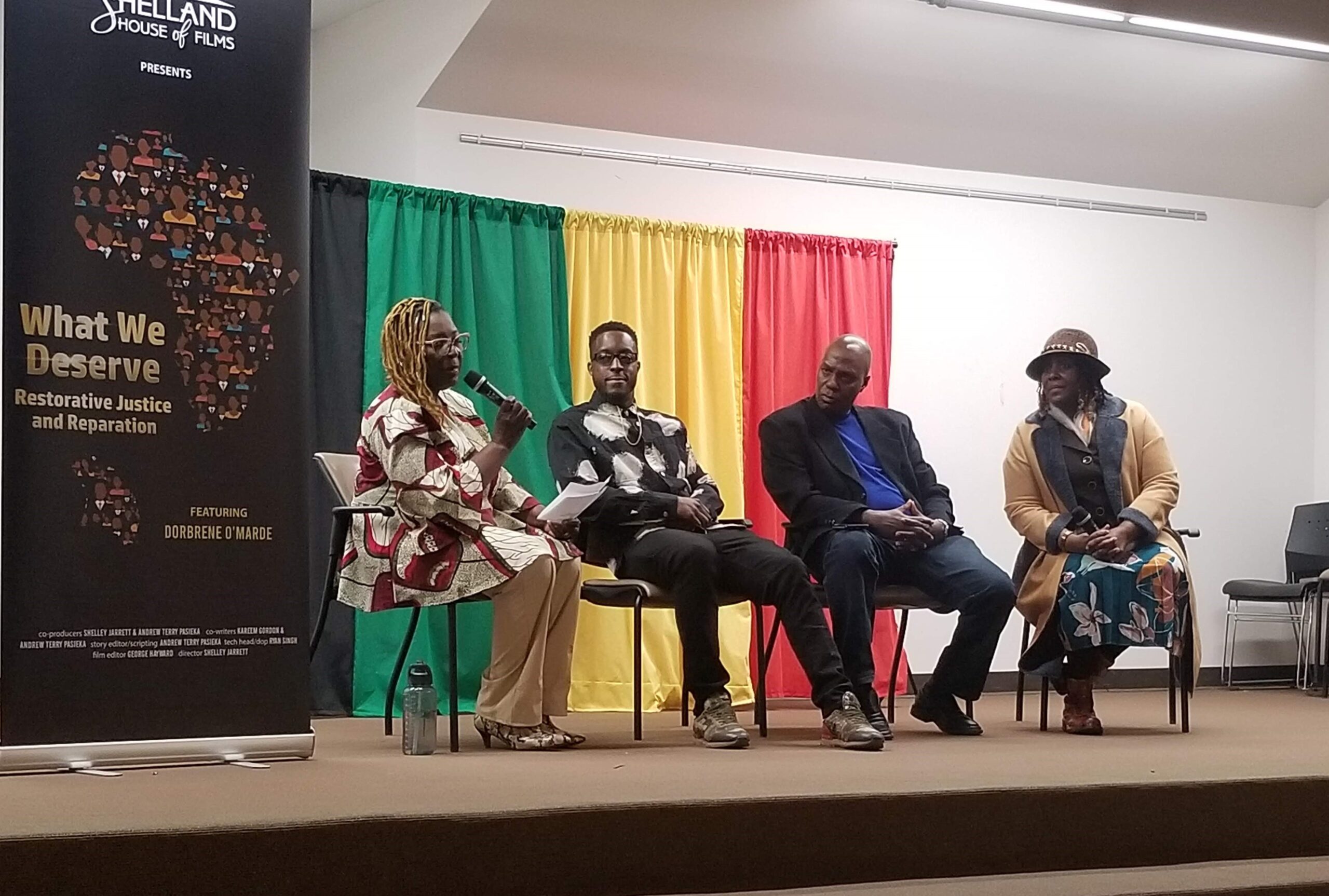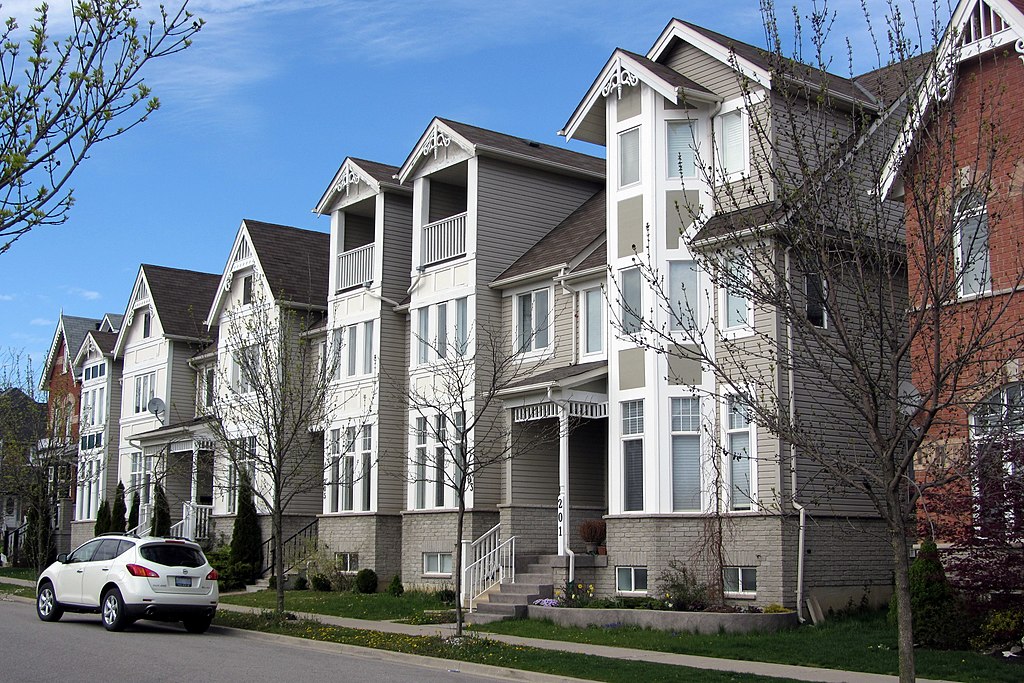This past weekend, Burlington Public Library hosted the premiere of Shelland House of Films’ What We Deserve, an in-depth look at the British monarchy’s role in the trans-Atlantic slave trade and the as-yet unfulfilled call for reparations for the descendants of enslaved people.
The film was co-created and co-produced by Shelley Jarrett and her husband, Andrew Terry Pasieka, and features Jarrett’s historian and writer son Kareem Gordon, as well as Dorbrene O’Marde, chairperson of the Antigua and Barbuda Reparations Commission, vice-chair of the CARICOM Reparations Commission, and an ambassador-at-large of Antigua.
Family connections are the cause of the making of this film in more ways than one: the death of Queen Elizabeth II, whose ancestors built the family wealth off the back of the slave trade, triggered family conversations at Jarrett’s dinner table in Milton, with Gordon telling his mother more about the history of that royal family across the pond. And so the making of What We Deserve began.
Pasieka calls the film “a conversation piece”; they want to spark discussion around the lasting impact of the slave trade and the repeated calls for reparations to Caribbean countries, which O’Marde describes in the film as happening in waves. These various waves have been brought about and halted by various geopolitical events, but King Charles III has made public reference now to the need for discussion of reparations. A clip is presented in the film of the king saying “we too must find new ways to acknowledge our past…this is a conversation whose time has come.”
In the film, Gordon lays out the relationship between the royals, the slave trade, and their wealth clearly. Pasieka then speaks to O’Marde in an on-camera long-distance video call, who lays out the case for reparations: crimes were committed by Europe, and there is ongoing hurt and injustice in the Caribbean as a direct result of the crimes of the slave trade, of slavery, and of the genocide of the Indigenous people of the region. “Reparation is the redress,” O’Marde states, and CARICOM has developed a ten-point action plan for how they see reparations taking place, developing the education and healthcare systems and managing the psychological welfare of the people of the Caribbean amongst those points.

Amazingly, What We Deserve was filmed in just one long, 10-hour day.
After the film, Jarrett and Gordon went onstage with guests Colin Jobe and Faith Greaves for a panel discussion. Included was the question “Is this the right time for reparations?” All the panel members agreed that the time was perfect, with increased discussion triggered by the Queen’s death; indeed, they said, the time was “long overdue.” Jobe noted, though, that the people and institutions involved show “situational ethics,” so while the time may be right, and people may be talking again, he is taking a hopeful wait-and-see attitude.
Before questions were taken from the audience, the panel discussed whether film and art could be a catalyst for real change rather than just an awareness-raising exercise. Greaves pointed out that “art is our life…[we] tell our stories, our truth…to start a movement.”
If you would like to arrange a screening of What We Deserve or for more information on this or W’at Abowt Us, Shelland House of Film’s award-winning 2019 documentary, go to https://shellandhouseoffilms.com/ or email shellandhouseoffilms@gmail.com.




